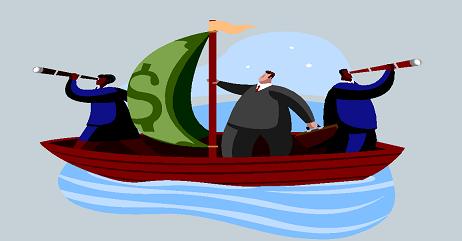The Global Strategic Rivalry Theory of international trade was developed in the 1980s by such economists as Paul Krugman and Kevin Lancaster as a means to ‘examine the impact on trade flows arising from global strategic rivalry between Multi-National Corporations.’ It explores the notion that in order to stay viable, firms should exploit their competitive advantage globally and try to keep it sustainable. According to this view, firms struggle to develop some sustainable competitive advantage, which they can then exploit to dominate the global marketplace. Like Linder’s approach, global strategic rivalry theory predicts that intraindustry trade will be commonplace. It focuses, however, on strategic decisions that firms adopt as they compete internationally.… Read the rest
International Business
International Business Management deals with the maintenance and development of a multinational operation across national borders, whose manager has the knowledge and the skills to manage and handle cross-cultural processes, stakeholders and business environments in a right way.
Trade Theory of Independence, Interdependence and Dependence
Independence — Interdependence — Dependence Theory of International Trade tries to read trade patterns and policies of countries based on their degree of independence or dependence or interdependence on rest of the world. See this is a continuum: Independence — Interdependence — Dependence. The polar extremes are Independence at one pole and Dependence at the other. Independence stops trade, while dependence boosts trade.
- Independence: Independence is being self-reliant. Well one cannot be self-reliant. Yet one country may choose to be independent and the cost of such obstinacy is self-denial of life’s luxuries, comforts and necessities that can be afforded without difficulty.
International Trade Theory of Country Size and Technology Gap
Country size has some definite relation to international trade as to what is traded, how much is traded and so on. The classical trade theories do not go into country-by-country differences in size to deal with the lines of specialization. When a small and big country are involved, the small country may be pushed into specialization, but not the big one for all its need for the other product can’t be produced by the other small country, nor that small country take all export surplus of the big nation resulting from specialization. Thus a nexus exists between global trade and country size.… Read the rest
Country Similarity Theory of International Trade
Country similarity theory was developed by a Swedish economist named Steffan Linder. Country similarity refers to what? Is it similarity of location or culture or political/ economic interests or technological capability (that is acquired advantage) or natural advantage or lack of it? Traditional trade theories speak of difference in demand or supply conditions or both as a necessary condition for trade between countries. That is, the traditional trade theories are built upon differences. But the country similarity theory is built of identical features of nations in trade. 8 out of top 10 trading partners of the USA are developed economies.… Read the rest
Mercantilism Theory of International Trade
The mercantilists proposed Mercantilism theory of international trade. They were a group of economists who preceded Adam Smith. The foundations of economic thought between 1500 and 1800 were based on mercantilism. Mercantilists believed that the world had a finite store of wealth; therefore, when one country got more, other countries had less. Mercantilists restricted imports and encouraged or subsidized exports as a conscious policy to make their citizens better off. Mercantilists judged the success of trade by the size of the trade balance.
Mercantilism was a sixteenth-century economic philosophy that maintained that a country’s wealth was measured by its holdings of gold and silver.… Read the rest
Political Environment of International Business
Political factors constitute an important environment factor in International Business. Actually politics and economics are inter-related as one influences the other. That was the reason for early writers of Economics preferred to caption their work as Political Economy. Political system, political parties in power, political parties in the opposition, political maturity of the parties, number of political parties, political awareness of people, political stability and the like have great impact on the business environment in a country. The economic policies pursued by a Government are to a great extent the by-product of political environment that impacts businesses very often.
Basic Political Ideologies
Political ideology refers to, ‘the body of ideas, theories, aims and means to execute the ideas, adapt the theories and fulfill the aims that constitute a sociopolitical programme for action’.… Read the rest
